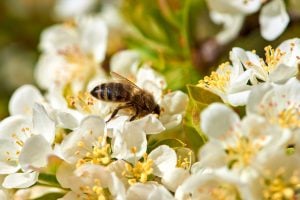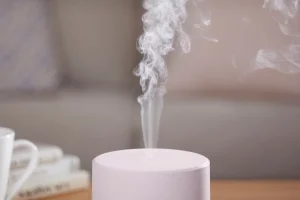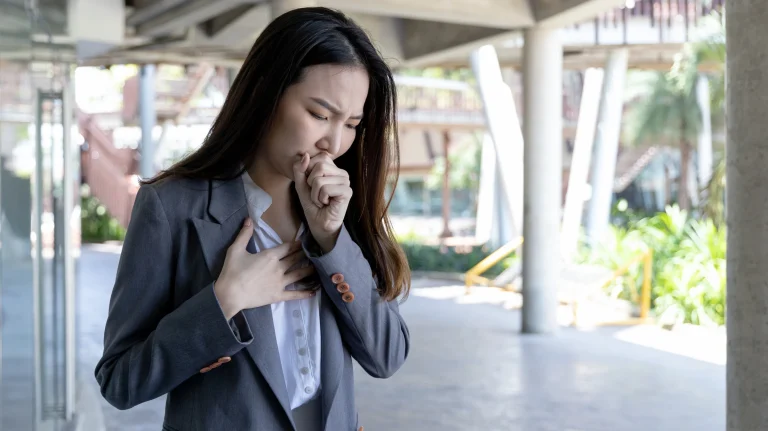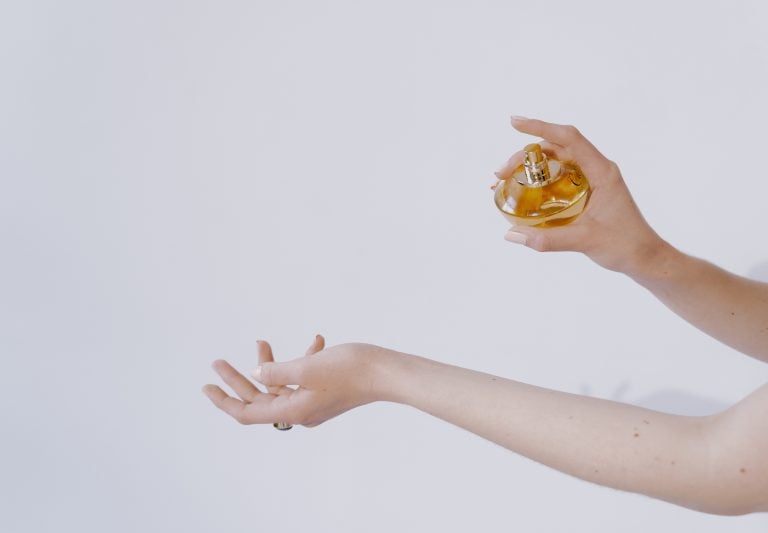Nasal polyps are growths inside the nose or sinuses. Although they don’t often pose specific health risks, polyps can cause uncomfortable symptoms, such as a runny or stuffy nose, excess mucus flowing down the throat, loss of smell or taste, and facial pain. Larger polyps can block the nasal passages. Sometimes, the condition interferes with sleep and contributes to anxiety or depression.1Mullol J, Azar A, Buchheit KM, et al. Chronic rhinosinusitis with nasal polyps: quality of life in the biologics era. J Allergy Clin Immunol Pract. 2022;10(6):1434-1453. https://www.sciencedirect.com/science/article/pii/S2213219822002434
Chronic congestion (or sinusitis) may result when nasal mucosa, the protective tissue lining the sinuses, becomes irritated and inflamed.2del Toro E, Hardin F, Portela J. Nasal polyps. StatPearls. 2025;May 5. https://www.ncbi.nlm.nih.gov/books/NBK560746/?report=reader#_NBK560746_pubdet_ These conditions, or poorly controlled allergies, usually precede the formation of nasal polyps.
Although viral sinusitis typically resolves on its own without prescription medicine, antibiotics may be required to fully treat bacterial sinusitis.3Kwon E, Hathaway C, Sutton AE. Acute sinusitis. In: StatPearls [Internet]. Treasure Island (FL): StatPearls 2025;Jan. https://www.ncbi.nlm.nih.gov/books/NBK547701/?report=reader Hallmark signs of sinusitis are a runny nose with pus-like nasal discharge, dental or facial pain, decreased sense of smell, headache, ear pain, bad breath, cough, fatigue, and nasal obstruction.4Kwon E, O’Rourke MC. Chronic sinusitis. StatPearls. 2023;Aug 8. https://www.ncbi.nlm.nih.gov/books/NBK441
Causes and risk factors

Rhinitis (nasal inflammation) and allergic rhinitis are considered the most common contributors to nasal polyps.5Narasimhan G, Deshmukh PT, Gaurkar SS, Khan FQ. A Comprehensive Review Exploring Allergic Rhinitis With Nasal Polyps: Mechanisms, Management, and Emerging Therapies. Cureus. 2024 Apr 28;16(4):e59191. https://pmc.ncbi.nlm.nih.gov/articles/PMC11130740 Some research ties an imbalance of flora in the nasal cavity to chronic sinus inflammation.4Eloy P, Musat G. What we know about nasal polyposis: the clinician’s point of view. Sinusitis. 2024;8(2):37-50. https://doi.org/10.3390/sinusitis8020006 Harmful microbes can overgrow healthy bacteria in the nose, much like what occurs with a compromised gut microbiome.
Recent studies have also shown a potential link between autoimmune conditions and nasal polyps.6Huang J, Xu Y. Autoimmunity: a new focus on nasal polyps. Int J Mol Sci. 2023;24(9). https://doi.org/10.3390/ijms24098444
People with allergies, asthma, or aspirin sensitivity have a higher risk of developing nasal polyps.4Eloy P, Musat G. What we know about nasal polyposis: the clinician’s point of view. Sinusitis. 2024;8(2):37-50. https://doi.org/10.3390/sinusitis8020006 Polyps tend to exacerbate asthma, with more severe disease and airway obstruction resulting from severe inflammation.7Laidlaw TM, Mullol J, Woessner KM, et al. Chronic rhinosinusitis with nasal polyps and asthma. J Allergy Clin Immunol Pract. 2021;9(3):1133-1141. https://www.jaci-inpractice.org/article/S2213-2198(20)31113-2/fulltext
Steroids, nasal spray, and other conventional treatments
Nasal polyps are conventionally treated with steroid medications, nasal sprays, and saline rinses. Treatment can take time—two to three months for some individuals. If polyps return, endoscopic sinus surgery may be necessary for complete recovery.2del Toro E, Hardin F, Portela J. Nasal polyps. StatPearls. 2025;May 5. https://www.ncbi.nlm.nih.gov/books/NBK560746/?report=reader#_NBK560746_pubdet_
Taming nasal inflammation
Addressing chronic inflammation is a central focus of naturopathic treatment for nasal polyps. People with both chronic sinusitis and nasal polyps have significantly higher indicators of inflammation in their nasal mucosa compared with those who have chronic sinusitis but no nasal polyps.8Gan W, Xiang Y, Wei B, et al. The inflammatory microenvironment of nasal polyps and its relationship with the nasal microbiome in patients with chronic rhinosinusitis. Asian J Surg. 2024;47(1):124-133. https://doi.org/10.1016/j.asjsur.2023.08.096
“Recent research links chronic rhinosinusitis and nasal polyps to systemic inflammation,” explains Michelle Durney, ND, a clinician at Wild Horse Health in Tempe, Arizona. “Identifying and addressing the root cause often leads to less invasive and more effective treatment options, providing the patient with more longstanding and sustainable relief from the condition.”
All-natural nasal rinses & neti pots

Xylitol nasal irrigation is among the most popular natural treatments for nasal polyps. Xylitol rinses have proven effective not only for addressing chronic sinusitis9Lin L, Tang X, Wei J, et al. Xylitol nasal irrigation in the treatment of chronic rhinosinusitis. Am J Otolaryngol. 2017;38(4):383-389. https://www.sciencedirect.com/science/article/abs/pii/S0196070916306093 but also for recovery following nasal polyp removal surgery.10Jiang R, Chiang Y, Liang K. Efficacy and safety of xylitol nasal irrigation after functional endoscopic sinus surgery: a randomized controlled study. Biomedicines. 2024;12(6). https://doi.org/10.3390/biomedicines12061377
“Studies support the use of xylitol-enhanced nasal rinses to improve mucociliary clearance and reduce inflammation caused by allergies, mucosal irritation, and local biofilm,” says Dr. Durney.
Neti pots are an easy way to try nasal irrigation at home. Using warm (not hot) distilled water and proper amounts of salt will help prevent irritation.
Dr. Durney also recommends steam inhalation to moisten the sinuses. “Add one tablespoon of dried thyme to a bowl of freshly boiled water, then carefully position [your] face over the bowl with a towel draped over your head to trap steam,” she instructs. “Inhale for approximately two minutes.” She notes that caution should be taken to avoid burns from hot water or steam exposure.
Preventing nasal polyps
Polyp prevention starts with allergy and asthma management, regular nasal irrigation,11Park D, Choi J, Kim D, et al. Clinical practice guidelines: nasal irrigation for chronic rhinosinusitis in adults. Clin Exp Otorhinolaryngol. 2022;15(1):5-23. https://doi.org/10.21053/ceo.2021.00654 and proper nasal hygiene. Humidifiers and steam inhalation may help alleviate dryness, which can exacerbate inflammation of the nasal mucosa.
Vitamin D supplementation may also help keep nasal polyps at bay, as people who struggle with the condition tend to be deficient.12Chandrakar A, Alexander A, R M, et al. 25-hydroxyl vitamin D deficiency in nasal polyposis. Int Arch Otorhinolaryngol. 2019;24(3). https://doi.org/10.1055/s-0039-3399541 Similarly, low levels of vitamin C have been reported among people with chronic sinusitis.13Poudineh M, Nikzad F, Parvin S, et al. Therapeutic effects of vitamins and nutritional supplements on sinusitis: a narrative review. Nutr Metab Insights. 2024 Oct 15;17:11786388241263680. https://doi.org/10.1177/11786388241263680 Both nutrients contain anti-inflammatory and immunoprotective properties.
Adopting a generally healthy lifestyle and seeking prompt treatment for sinus infections can further reduce the risk of polyp recurrence. These preventive strategies help support the immune system and minimize inflammation.
Footnotes
- 1Mullol J, Azar A, Buchheit KM, et al. Chronic rhinosinusitis with nasal polyps: quality of life in the biologics era. J Allergy Clin Immunol Pract. 2022;10(6):1434-1453. https://www.sciencedirect.com/science/article/pii/S2213219822002434
- 2del Toro E, Hardin F, Portela J. Nasal polyps. StatPearls. 2025;May 5. https://www.ncbi.nlm.nih.gov/books/NBK560746/?report=reader#_NBK560746_pubdet_
- 3Kwon E, Hathaway C, Sutton AE. Acute sinusitis. In: StatPearls [Internet]. Treasure Island (FL): StatPearls 2025;Jan. https://www.ncbi.nlm.nih.gov/books/NBK547701/?report=reader
- 4Eloy P, Musat G. What we know about nasal polyposis: the clinician’s point of view. Sinusitis. 2024;8(2):37-50. https://doi.org/10.3390/sinusitis8020006
- 5Narasimhan G, Deshmukh PT, Gaurkar SS, Khan FQ. A Comprehensive Review Exploring Allergic Rhinitis With Nasal Polyps: Mechanisms, Management, and Emerging Therapies. Cureus. 2024 Apr 28;16(4):e59191. https://pmc.ncbi.nlm.nih.gov/articles/PMC11130740
- 6Huang J, Xu Y. Autoimmunity: a new focus on nasal polyps. Int J Mol Sci. 2023;24(9). https://doi.org/10.3390/ijms24098444
- 7Laidlaw TM, Mullol J, Woessner KM, et al. Chronic rhinosinusitis with nasal polyps and asthma. J Allergy Clin Immunol Pract. 2021;9(3):1133-1141. https://www.jaci-inpractice.org/article/S2213-2198(20)31113-2/fulltext
- 8Gan W, Xiang Y, Wei B, et al. The inflammatory microenvironment of nasal polyps and its relationship with the nasal microbiome in patients with chronic rhinosinusitis. Asian J Surg. 2024;47(1):124-133. https://doi.org/10.1016/j.asjsur.2023.08.096
- 9Lin L, Tang X, Wei J, et al. Xylitol nasal irrigation in the treatment of chronic rhinosinusitis. Am J Otolaryngol. 2017;38(4):383-389. https://www.sciencedirect.com/science/article/abs/pii/S0196070916306093
- 10Jiang R, Chiang Y, Liang K. Efficacy and safety of xylitol nasal irrigation after functional endoscopic sinus surgery: a randomized controlled study. Biomedicines. 2024;12(6). https://doi.org/10.3390/biomedicines12061377
- 11Park D, Choi J, Kim D, et al. Clinical practice guidelines: nasal irrigation for chronic rhinosinusitis in adults. Clin Exp Otorhinolaryngol. 2022;15(1):5-23. https://doi.org/10.21053/ceo.2021.00654
- 12Chandrakar A, Alexander A, R M, et al. 25-hydroxyl vitamin D deficiency in nasal polyposis. Int Arch Otorhinolaryngol. 2019;24(3). https://doi.org/10.1055/s-0039-3399541
- 13Poudineh M, Nikzad F, Parvin S, et al. Therapeutic effects of vitamins and nutritional supplements on sinusitis: a narrative review. Nutr Metab Insights. 2024 Oct 15;17:11786388241263680. https://doi.org/10.1177/11786388241263680





